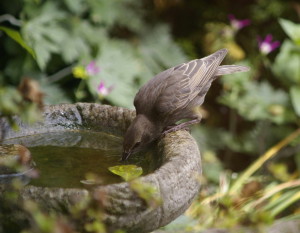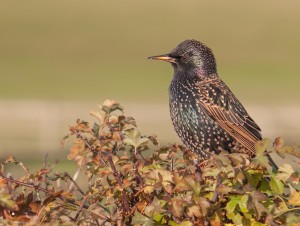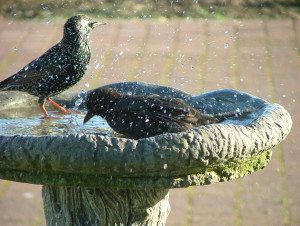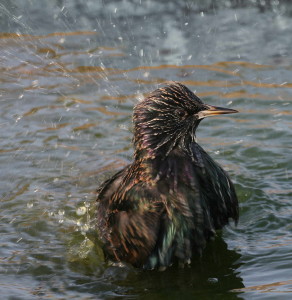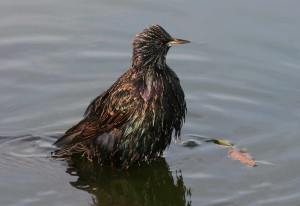Drowning has emerged as a mysterious cause of death amongst groups of young common starlings (Sturnus vulgaris), according to research by a team of scientists led by international conservation charity the Zoological Society of London (ZSL), published today in the journal Scientific Reports.
Drowning as a cause of death amongst wild birds is comparatively rare and normally involves single rather than multiple animals. Starlings, however, have been observed to drown in groups of 10 or more, prompting scientists to investigate these unusual occurrences.
The team studied 12 separate incidents of starling drownings recorded between 1993 and 2013, finding that on 10 of these occasions, more than 10 birds drowned. All of these incidents, which usually involved juvenile birds of just a few months old, occurred during the spring and early summer months. In all cases, scientists found no evidence of underlying disease as a cause of death.
Dr Becki Lawson, lead author and wildlife veterinarian at ZSL, commented: “Drowning appears to be a more common cause of death amongst younger birds, as they may be inexperienced in identifying water hazards. This combined with the fact that starlings are a highly social species could potentially explain why multiple birds drown together.”
“Members of the public from around Great Britain have been instrumental in bringing this unexpected cause of starling mortality to our attention by reporting these incidents. With starling numbers declining in general across the UK, we need to learn more about how and where these phenomena happen, in order to better understand why,” Dr Lawson explained.
Rob Robinson, co-author and Associate Director of Research at the British Trust for Ornithology (BTO) said: “Starlings are a Red-listed species in the UK, under threat from issues including loss of nesting sites and a lack of insect food sources – so much so that their population has declined 79 per cent in the past 25 years. Whilst drowning is an unexpected cause of death, it’s not thought to be a conservation threat as – fortunately – these incidents are currently relatively rare. However, we still need to better understand factors such as disease that might be contributing to this decline. We would therefore ask people to keep up the good work by reporting incidents of starling death, whatever the apparent cause, via the Garden Wildlife Health website.”
Water can be a valuable resource for wild birds, particularly during the summer months. Providing water sources such as ponds or bird baths is still recommended as a way to support garden wildlife. However, experts also recommend adding a sloping exit or ramp to water features, in order to help birds and other animals easily access and exit water sources.
People across Britain who spot sick or dead wildlife in gardens can help scientists learn more about their cause by reporting these incidents via the project website: www.gardenwildlifehealth.org

